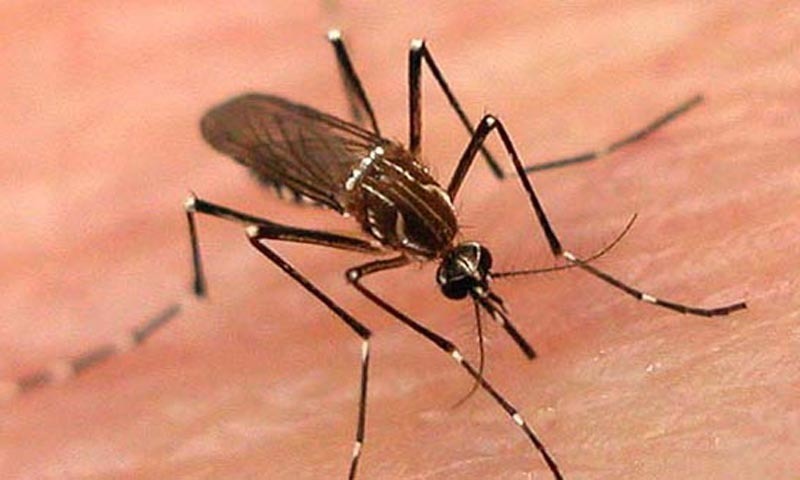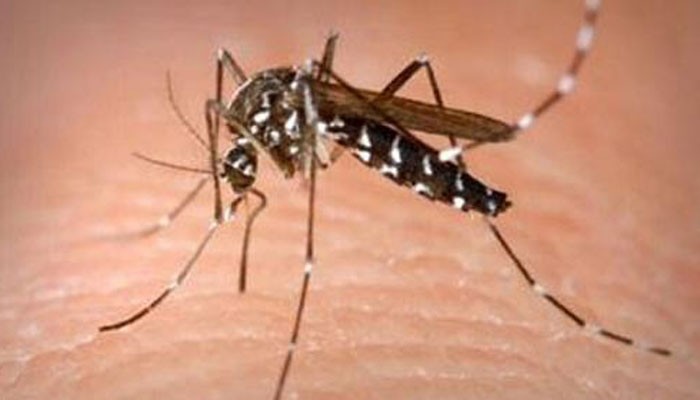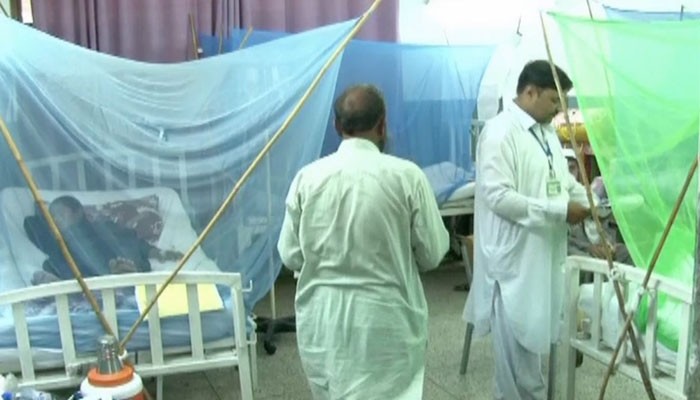More than 1,500 dengue cases reported in Peshawar
August 22, 2017

PESHAWAR: A total of 24 new cases have been reported in Peshawar in the last 24 hours, according to the office of deputy commissioner Peshawar.
Around 1,547 dengue positive cases have been reported since June 1, the office revealed.
Since June 1, about seven patients have passed away due to dengue, the data stated, while 560 patients were admitted in hospitals, out of which 318 were discharged and 242 are still admitted.
The data has been compiled from total patients admitted at Khyber Teaching Hospital, Hayatabad Medical Complex, Lady Reading Hospital, Naseer Ullah Babar Teaching Hospital, Molvi G Hospital, Police and Services Hospital, Cantt General Hospital, North West Hospital, Rehman Medical Hospital, Mercy International Hospital and Kuwait Teaching Hospital.
Moreover, the affected areas include Tehkal Pishtakhara, Tehkaf, Deh Bahadur, Warsak Road.
WHO traces dengue outbreak in KP
The recent dengue outbreak in Khyber Pakhtunkhaw (KP) has become an alarming situation for the authorities and residents alike.
The first case of dengue outbreak this year was reported from Peshawar in June 14, 2017, states the report, adding that the patient was diagnosed NS1 positive at Khyber Teaching Hospital.
Following, the numbers rose and about 4,000 patients were being treated by August 6, 2017.
Unveiling causes
The report reveals that people of both studied localities were “storing water in small and big containers (using barrels, canisters, buckets) due to unreliable water supply and due to poor socioeconomic conditions.”
Moreover, it was also revealed that the identified localities had many wood workshops and mechanic shops due to which huge quantities of waste material, and water holding containers (wood polish pots thrown in the dumped piles, tyres, car mud guards windows) were converted into breeding sites after the recent torrential rains in the city.
Taking action
On the steps taken, the report states that deet lotions (or sprays) have to be provided to families through lady health workers as mosquito repellants.
Moreover, videos and TV spots were handed over to the authorities to use in local TV networks for community awareness.
The report suggests that hospital based surveillance needs to be strengthened,a separate dengue filter clinic should be setup, hospitals should be provided with test kits, medicines, ambulance service (in affected localities) along with providing aid in the diagnosis of the disease.








